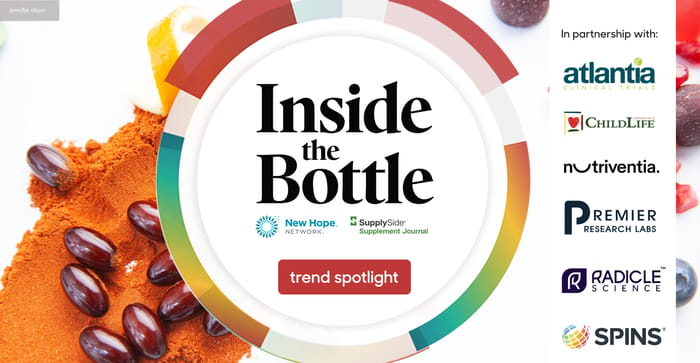How to ship frozen food more sustainably
Two brands share the non-styrofoam solutions that are working for them.
April 8, 2019

As consumers become more savvy, the planet more threatened by climate change, and more natural brands expand their frozen options, it’s more important than ever for brands to ensure their efforts at sustainability extend beyond the food itself. Shipping frozen is inherently a resource-intensive practice, so we checked with a few companies to ask how they minimize the impacts from this aspect of the supply chain.
Adam Zbar, the CEO and co-founder of Sun Basket, said:
“Here at Sun Basket, we strive to use recyclable and compostable materials for our boxes … Our insulation is made of 100% shredded recycled paper filling between two sheets of 100% recyclable kraft paper.” It is recyclable through curbside programs, and even if it gets wet.
“Moreover, our ice packs are made of a gel that’s 98% water and 2% non-GMO cotton. You can cut open the plastic bag and drain the gel into your trash or curbside compost bin. The water will evaporate, leaving only the dried, compostable cotton behind. Alternatively, you can use the gel to water your garden. The lining can be processed at recycling centers that accept #4 plastic films.”
A spokesperson for Cali’flour Foods shared some of its best practices:
“When shipping directly to consumers, we ship our products shelf-stable. We do so by using vacuum-sealed bags that allow for 7-10 days of freshness. Since we don't use any preservatives, we then encourage the consumer to freeze upon arrival and extend the shelf life to nine months.”
“We also offer what we call stack packs to our consumers, which completely eliminate the retail packaging of our pizza crusts. This of course helps to reduce package waste immensely, while also freeing up some precious freezer space for the consumer!”
Thinking differently inside the box
Another company that’s been growing out of the UK, Woolcool, has come up with insulation made out of felted sheep’s wool—a byproduct of the shearing process—that’s sealed in a polyethylene wrap. The company has a range specifically for deliveries of chilled and frozen foods, from fresh vegetables, fruit and fish to gourmet menus and ready-to-eat meals. Among its customers are Unilever and a number of smaller, mostly UK-based brands like Riverford Organic, a vegetable box delivery company.
About the Author
You May Also Like





